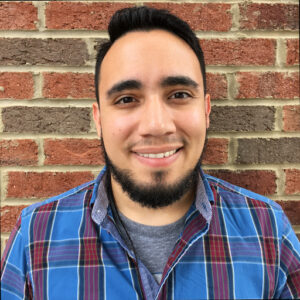Rogelio Cardona-Rivera, a jointly appointed assistant professor in the Entertainment Arts and Engineering Program and in the School of Computing at the University of Utah, has been selected to receive a National Science Foundation Faculty Early Career Development (CAREER) award, NSF’s highest honor for early-career scientists and engineers.
The five-year, $544,379 CAREER award, which recognizes faculty who possess the potential to serve as academic role models in research and education, will support Cardona-Rivera’s research into the development of a science of games. The project, CAREER: Plan-based Simulation of Human Story Understanding, looks to increase our knowledge around computational models of human cognition in the context of stories like those at the core of many games
Cardona-Rivera, who is the second EAE faculty member to receive an NSF CAREER Award, explained that storytelling is a fundamental part of the human experience. We tell stories and interpret stories almost daily to share perspectives, teach one another, and communicate between ourselves in more compelling ways. But while narratives are a form of information to which our minds are predisposed, an open question remains: how do people understand stories? By establishing the foundations for a science of narrative that is focused on prediction, this effort aims to afford (to scientists, technologists, and the broader public) the ability to systematically construct stories that resonate with audiences as one intends.
“The overall aim of the work is to better understand how humans make sense of stories, as we would experience them in books, films, and interactive games,” said Cardona-Rivera. “Narratives are powerful communicative tools: they educate, inspire, and entertain in long-lasting ways. However, there is still a lot we do not know about how to intentionally bring about those effects. This in turn leads to a lot of guesswork, iteration, and testing. This makes entertainment engineering less scalable, leading to things like ‘game development crunch.` Hopefully, my work contributes to changing that.”
Michael Young, EAE’s Director, commended Cardona-Rivera’s research. “Rogelio’s research is novel and exciting because they approach research questions from a variety of disciplines and perspectives to produce holistic answers,” he said. “Stories are at the core of most games and are a central part of how we make sense of the worlds we experience. This grant will bring new insight into those cognitive processes that can lead to better design methods for games and virtual worlds.”
Rogelio’s research group, the Laboratory for Quantitative Experience Design (QED Lab) is an interdisciplinary team that builds human-centered artificial intelligence systems in search of invariant properties of experience design: precise relationships that exist between an inner environment (a person’s cognitive states), interface (narrative & game discourse) and outer environment (virtual worlds). Learn more about their work here.
